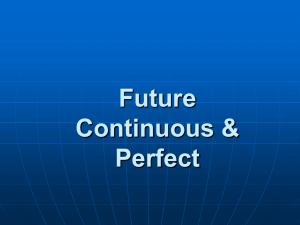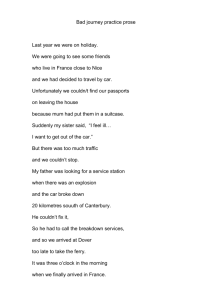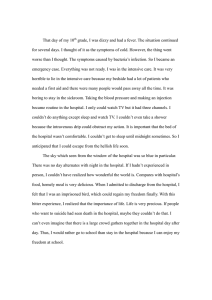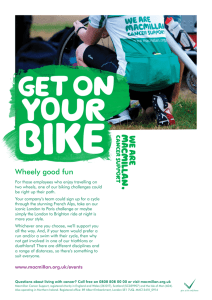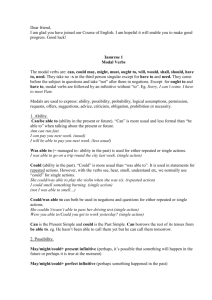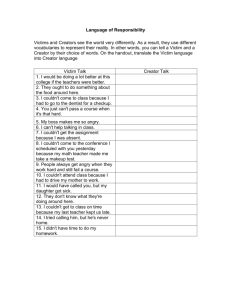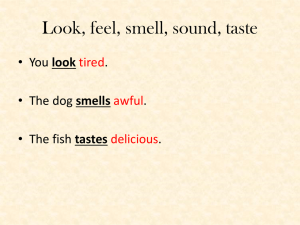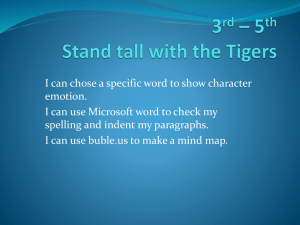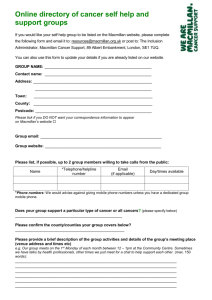BE ABLE TO - English 4 All
advertisement
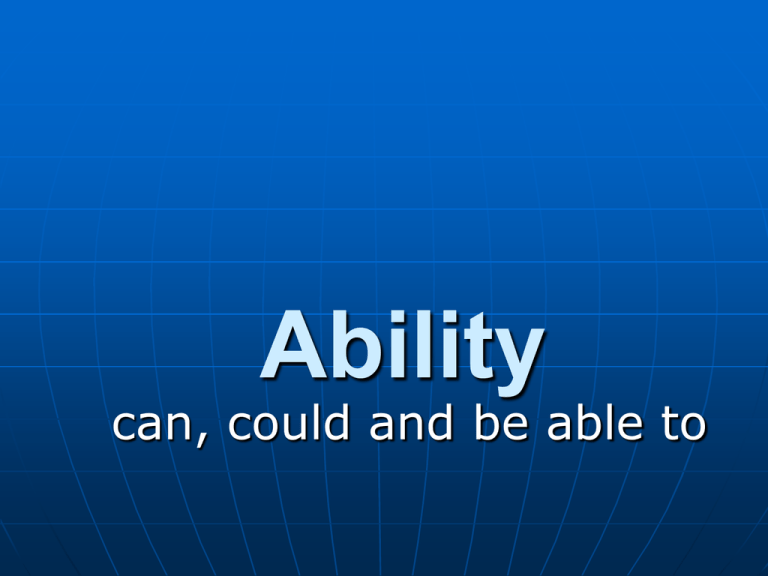
Ability can, could and be able to Ability present She can do many things. She’s able to do many things. Use can or be able to to talk about ability in the present. Note: In everyday speech, can is more common than be able to in the present. Ability - future We normally use will be able to to talk about ability in the future. The way you practise, I am sure you’ll be able to play soccer for your school team. However, we often use can / can’t to talk about future arrangements. I can go to the soccer game with you tomorrow. Ability - past Sam could read when he was four. *Use could for general ability in the past. *Use managed to or was / were able to to talk about a specific achievement or a single event in the past. He managed to delete the virus from his computer. He was able to fix his computer when it broke down. Ability - past NOTE: Use either could or was / were able to in negative sentences about past ability. He couldn’t wake up this morning. He wasn’t able to get to school in time to make the test. Ability - past Use could with verbs of perception, like see, smell, hear, taste, feel, even if it is one occasion. He couldn’t hear what the teacher said during the course. Ability - other For forms and tenses other than the present or past, use be able to. He wants to be able to save the museum. (infinitive) Maybe in the next movie, he will be able to save more important people. (future) It’s ok for him not being able to fly a plane. (-ing) He hasn’t been able to find a girlfriend so far. (present perfect) Complete the sentences with CAN, COULD or BE ABLE TO. 1. George has traveled a lot. He ______________ speak four languages. CAN / IS ABLE TO (ability in the present) 2. I used to ______________ stand on my head but I can't do it now. BE ABLE TO (used to) 3. When Tim was 16, he was a fast runner. He __________ run 20 kilometers in 1 hour. COULD / WAS ABLE TO (ability in the past) 4. Sandra ______________ drive but she doesn’t have a car. CAN / IS ABLE TO (ability in the present) 5. Ask Catherine about your problem. She might __________ help you. BE ABLE TO (might) 6. I was feeling sick yesterday. I ______________ eat anything. COULDN’T (ability in the past) 7. Sue wasn't at home when I phoned but I ________ contact her at her office. WAS ABLE TO (a specific achievement) 8. When we went into the house, we ___________ smell burning. COULD (verb of perception) 9. Will she ______________ cope with the work? BE ABLE TO (future) 10. I can't see you on Friday but I ______________ meet you on Saturday evening. CAN / WILL BE ABLE TO (future) Adapted from http://www.tolearnenglish.com 11. My grandfather _________ walk without any help last night. WAS ABLE TO (ability in the past – specific achievement) 12. They _________ build a new house next year. WILL BE ABLE TO (future) 13. I would like to __________ play the piano. BE ABLE TO (infinitive) 14. When my sister was five, she _________swim. COULD NOT (ability in the past) 15. How long have you ___________ drive? BEEN ABLE TO (present perfect) 16. Maggie has passed her driving test, now she ________ drive a car. CAN (ability in the present) 17. He _____________ find the password after three attempts. WAS ABLE TO (ability in the past – specific) 18. Claire _________do her homework because her desk is a mess. WILL NO BE ABLE TO (future) 19. They were so busy, they ______ write me a text message. COULD NOT (ability in the past) 20. When I was a child, I __________ skateboard. COULD (ability in the past) Bibliography FALLA, Tim. Solutions Upper-Intermediate, Oxford, 2009 FUCHS, Marjorie & BONNER, Margaret. Grammar Express, Longman, 2003 VINCE, Michael. Macmillan English Grammar in Context, Macmillan, 2008 Developed by Kátia Martins Pereira
